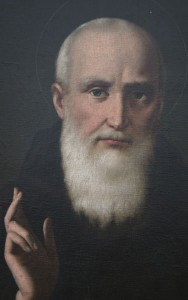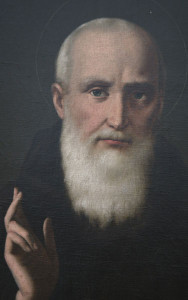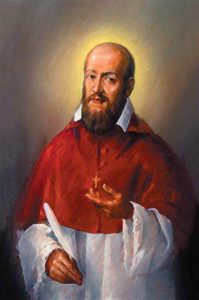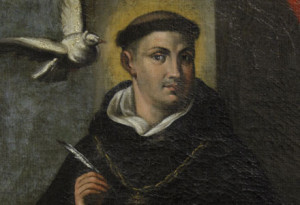Podcast: Play in new window | Download (Duration: 29:22 — 20.2MB) | Embed
Subscribe: Apple Podcasts | Spotify | Amazon Music | Android | Pandora | iHeartRadio | JioSaavn | Podchaser | Gaana | Podcast Index | Email | TuneIn | Deezer | Anghami | RSS | More

Call From Seclusion- The Life of St. Benedict – The Holy Rule of St. Benedict with Fr. Mauritius Wilde, O.S.B.
Fr. Mauritius Wilde and Kris McGregor continue their discussion about the life of St. Benedict. They delve into his journey of detachment from earthly ties, including his parents and his immersion into solitude.
Fr. Mauritius also highlights a significant encounter where Benedict forgets the date of Easter, suggesting a detachment even from the Church’s calendar, leading to a deeper understanding of the Easter mystery. This experience is likened to an analog versus original experience, where Benedict transitions from outward knowing to inward experiencing.
The discussion expands to the broader significance of Easter and the importance of active participation and interior understanding within the Church. It concludes with reflections on gratitude towards the Church, personal contribution to its vitality, addressing problems respectfully, and continuing prayer.
Discerning Hearts Reflection Questions:
- Gratitude for Church Gifts: Reflect on the aspects of the Church that you’re thankful for and how you’ve benefited from them.
- Personal Contribution to Church Life: Contemplate how you can actively contribute to making the Church more vibrant and alive in your community.
- Addressing Church Challenges: Consider any issues or problems within the Church and how you can respectfully and constructively engage with them.
- Deepening Prayer with the Church: Reflect on how you can deepen your prayer life in alignment with the Church’s teachings and traditions.
- Living the Mystery of Easter: How can you live out the mystery of Easter in your daily life beyond just celebrating it as a yearly ritual?
- Active Participation in Church Life: How can you actively participate in the life of the Church, both spiritually and practically, to foster its growth and renewal?
From the Life of Our Most Holy Father St. Benedict by St. Gregory the Great:

CHAPTER I.
“Now when it pleased Almighty God that Romanus should rest from his labours, and that the life of Benedict should be manifest to the world for an example to all men, that the candle set upon a candlestick might shine and give light to the whole Church of God, our Lord vouchsafed to appear to a certain Priest living far off, who had make ready his dinner for Easter Day, saying to him: “Thou hast prepared good cheer for thyself, and My servant in such a place is famished for hunger.” Who presently rose up, and on the solemn day of Easter went towards the place with such meat as he had provided for himself, where seeking the man of God, amongst craggy rocks, winding valleys and hollow pits he found him hid in a cave. Then after prayers, and blessing the Almighty Lord, they sat down, and after some spiritual discourse the Priest said: “Rise, and let us take our refection, for this is Easter Day.” To whom the man of God answered: “I know it is Easter, because I have found so much favour as to see thee.” (For not having a long time conversed with men, he did not know it was Easter Day.) The good Priest did therefore again affirm it, saying: “Truly this is the day of our Lord’s Resurrection, and therefore it is not fit that you should keep abstinence, and for this cause I am sent that we may eat together that which Almighty God hath bestowed on us.” Whereupon blessing God, they fell to their meat. Their discourse and dinner ended, the Priest returned to his Church.”
Father Mauritius Wilde, OSB, Ph.D., did his philosophical, theological and doctoral studies in Europe. He is the author of several books and directs retreats regularly. He serves as Prior at Sant’Anselmo in Rome. For more information about the ministry of the Missionary Benedictines of Christ the King Priory in Schuyler, NE





 St. Francis de Sales Novena – Day 5
St. Francis de Sales Novena – Day 5
